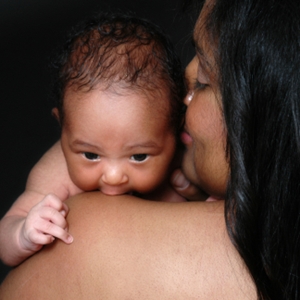
The risk of sudden infant death syndrome (SIDS) is five times higher when parents sleep with their infant, a new study finds.
British researchers noted that bed-sharing increases the risk for SIDS even if parents do not drink, use illegal drugs or smoke. They advised that rates of SIDS, which is a major cause of infant death in developed countries, would drop dramatically if parents did not sleep with their babies.
In the United States, all parents are advised to not sleep with infants less than 3 months old. However, in England only certain parents, such as those who smoke, drink or use drugs, are advised to do the same. Based on their findings, the researchers said a stronger stance against bed-sharing for infants is needed in that country.
The study, led by Robert Carpenter, a professor at the London School of Hygiene and Tropical Medicine, involved data on 1 472 SIDS cases and 4 679 "controls" published in five different sets of data from the United Kingdom, Europe and Australasia.
80% of the deaths occurred while bed-sharing
"Eighty-eight percent of the deaths that occurred while bed-sharing would probably not have occurred had the baby been placed on its back in a cot by the parents' bed," the study authors wrote in a school news release.
The researchers added that even among very low-risk breast-fed babies, 81% of SIDS deaths in infants under the age of 3 months could have been prevented by not co-sleeping. In cases where neither parent smoked, the baby was breast-fed and the mother did not drink or take drugs, the risk for SIDS was still five times higher than if the baby slept in a crib next to the parents' bed. The study authors pointed out that the parents of 22% of the infants who died from SIDS had been sleeping with their child at the time of death.
The investigators pointed out the risk for SIDS drops as babies get older. Still, they noted, the risk was much higher if either parent smoked, or if the mother had at least two drinks within 24 hours or had used illegal drugs, such as marijuana, at any time since the baby was born.
Over the past decade, there has been a significant increase in co-sleeping; the study authors estimated that about half of SIDS cases occur while co-sleeping.
"We do not suggest that babies should not be brought into the parent's bed for comfort and feeding," the researchers wrote. "This has been investigated in previous studies and has not been found to be a risk factor, provided the infant is returned to his or her own cot for sleep."
The study was published in the current online edition of the journal BMJ Open.
More information
The US Centers for Disease Control and Prevention has more about SIDS.




 Publications
Publications
 Partners
Partners










